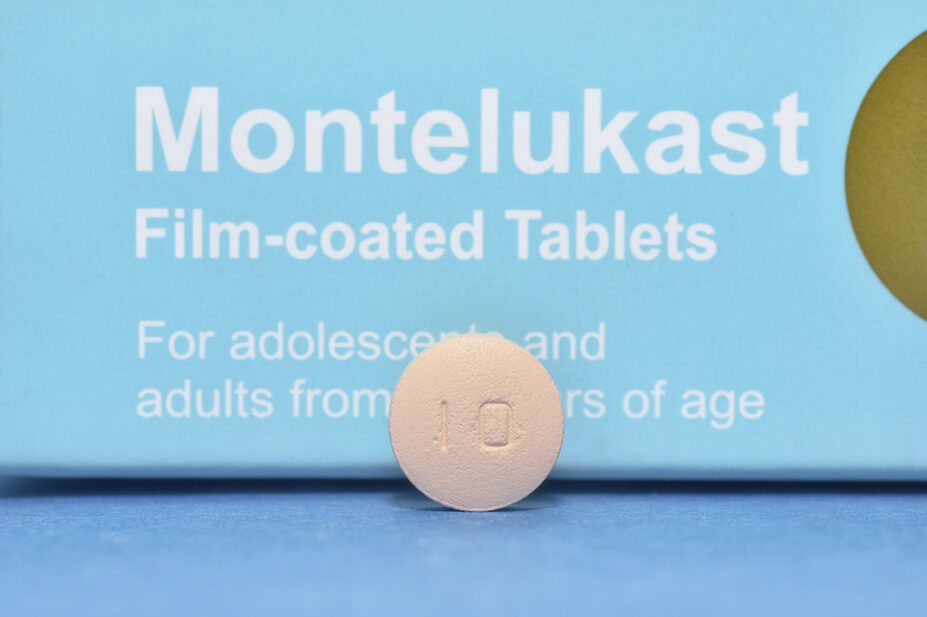by David Lipanovic

Montelukast is an oral leukotriene receptor antagonist, indicated as add-on therapy for treatment of mild-to-moderate persistent asthma for patients aged six months and older
DR P MARAZZI / SCIENCE PHOTO LIBRARY
Further safety measures will be introduced for montelukast, a drug used for the treatment of asthma, to ensure patients are informed of the risk of neuropsychiatric reactions, following a safety review.
In a statement, published on 29 April 2024, alongside a drug safety update outlining new safety measures, the Medicines and Healthcare products Regulatory Agency (MHRA) said that “more prominent warnings” will be added to the patient information leaflet (PIL), provided with every pack of montelukast in the UK.
The drug safety update added that the warnings in the PIL and summary of product characteristics for all montelukast products have been strengthened and highlighted with a black box for greater emphasis.
The UK regulator also advised healthcare professionals prescribing the drug to be alert for neuropsychiatric reactions, including sleep disorders, hallucinations, anxiety and depression, as well as changes in behaviour and mood.
In March 2024, the MHRA announced a safety review of montelukast following an increased number of Yellow Card reports from patients who have experienced suspected neuropsychiatric adverse reactions, including suicidal behaviour.
Since it was first authorised in the UK in 1998, approximately 44 million prescriptions of montelukast have been issued. During this time, there have been 1,223 reports of suspected neuropsychiatric adverse reactions.
Montelukast is an oral leukotriene receptor antagonist, indicated as add-on therapy for treatment of mild-to-moderate persistent asthma for patients aged six months and older.
Following its safety review, the MHRA said the Yellow Card data indicated a potential lack of awareness of the risk of neuropsychiatric reactions with montelukast among healthcare professionals, patients and their caregivers.
Commenting on the new safety measures, Andy Whittamore, clinical lead at Asthma + Lung UK, said: “It is reassuring that following a comprehensive safety review of the medication montelukast, the MHRA is taking steps to improve awareness of its potential side effects, although these are rare.
“It is a very safe medication for preventing asthma flare-ups in most people. But more prominent warnings will help ensure that doctors fully explain them to people with lung conditions, so they are more aware of those side effects and know to contact their doctor as soon as possible should they experience any of them,” he added.
Darush Attar-Zadeh, clinical fellow respiratory pharmacist at North West London Integrated Care Board and co-chair of the Taskforce for Lung Health medicines optimisation working group, said: “We’ve known for years tat montelukast has potential side effects.
“Although the neuropsychiatric ones are uncommon, with the increase in recent Yellow Card reports and feedback received by the MHRA from experts, clinicians need to be upskilled,” he added.
“Montelukast isn’t prescribed as often as inhaled treatments in asthma, it’s important medicines optimisation teams make the alerts more prominent on GP systems, as the boxed warnings can be missed and patient advice can be forgotten.
“If the medicine is initiated, it’s important a patient is reviewed withing six to eight weeks to see if it’s benefiting them, if not it [montelukast] should be withdrawn,” added Attar-Zadeh.
On 29 April 2024, the MHRA also published a drug safety update to remind healthcare professionals of the risk of psychiatric and sexual side effects associated with men taking finasteride, which may persist after discontinuation.
In the UK, finasteride is licensed for treatment of benign prostatic hyperplasia or male pattern hair loss. Following a safety review of the drug, the MHRA said that a patient alert card would be introduced to raise awareness of the side effects.
Transferred link:https://pharmaceutical-journal.com/article/news/montelukast-will-carry-more-prominent-warnings-of-neuropsychiatric-reactions

